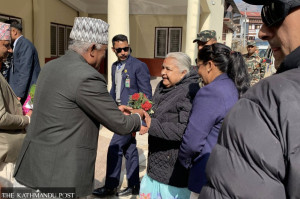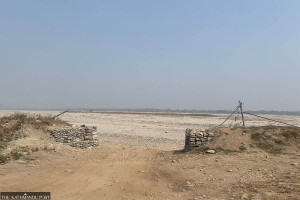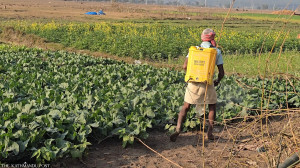Koshi Province
Ilam bypoll: Fillip for old parties, reality check for RSP
Experts say traditional parties remain relevant and identity politics continues to thrive.
Purushottam Poudel
The victory of Suhang Nembang, a political neophyte representing the CPN-UML, in Ilam-2 by-election may not have a big impact on the make-up of the federal parliament. But it nevertheless hints at the country’s general political landscape and, of course, of the Koshi Province, where identity politics had been all the rage in the lead-up to the election.
The nomenclature of Koshi Province, of which Ilam is a district, had been a flashpoint of violent agitation led by the proponents of identity politics who wanted a name that reflected the ethnic identity of the place.
Two activists from that front—Milan Limbu, representing the Rastriya Swatantra Party (RSP), and independent Dakendra Singh Limbu, who was part of the Province-1 Renaming Joint Struggle Committee—were in the fray. So there was curiosity on how they would perform. While the latter came in third with 11,457 votes, the former’s electoral run ended rather dismally as he could not even protect his security deposit.
The votes gained by Dakendra has undercut the claims of the major parties that voices for identity-based politics in the region were weakening, argues Govinda Chhantyal, who is among the activists who opposed the nomenclature of Koshi Province.
“The number of votes independent candidate Dekendra Singh Limbu garnered in Ilam-2 bypoll has established identity-politics as a major agenda in the region,” Chhantyal told the Post. “Since the 2014 election, the agenda of identity politics has been subjugated. This by-election, however, has once again established it as a political agenda.”
The election result has also given the emergent Rastriya Swatantra Party a reality check, experts say. The RSP has a long way to go if it is to establish itself as a major political force throughout the country, they say, as candidates of both the ‘traditional’ political parties, the Nepali Congress and the CPN-UML, trumped all others.
The Ilam-2 House of Representatives seat went vacant after former Speaker and vice-chair of UML Subas Chandra Nembang died of a heart attack in September last year.
While Suhang, the late leader’s son, won the bypoll securing 27,772 votes, his closest competitor, Dambar Bahadur Khadka, of the Nepali Congress, obtained 21,942 against Dakendra Singh’s 11,457 and Milan Limbu’s 5,050.
The result shows the old parties are very much in the fray.
“It seems people still see the old parties as relevant given their robust networks at the grassroots, which RSP and independent candidates lacked,” Chiran Manandhar, who was one the observers of Ilam-2 election representing the Democracy Research Center Nepal, told the Post. “People who aspire to political patronage still find old parties relevant.”
The RSP had created great buzz with their vigorous campaigning for the Ilam-2 seat. Their candidate Milan Limbu and the independent Dakendra Singh had challenged the traditional parties. Given the past votes obtained by the RSP in the 2022 election and the by-elections in Chitwan-2 and Tanahun-1 a year earlier, the party was expected to challenge the established forces this time, too. But that was not to be.
After the poll results, RSP chief Rabi Lamichhane took to social media to thank all the voters and urged his party supporters to accept the outcome. “Thank you everyone who voted for us and also gave us a big message,” he said.
Other RSP leaders have said that there were some shortcomings of the party while contesting the Ilam-2 seat, which they would review in the upcoming central committee meeting of the party.
“We heeded the signal bell, albeit belatedly,” reads the statement released by party general secretary Mukul Dhakal after the results.
The RSP, which emerged as the national political force in the November 2022 election, still has a long way to go before it becomes a major political party that can go toe to toe against the likes of the Congress and the UML, experts say.
“It seems the RSP has some currency in the urban areas of the country, but when it comes to the countryside, they still need to work hard to establish a base,” Chandra Dev Bhatta, a political scientist, told the Post.
For Bhatta, party president Lamichhane’s alleged involvement in the cooperative scam is another reason why RSP could not perform well in Ilam-2.
Lamichhane, who is also the deputy prime minister and minister of home affairs, has been accused in the cooperative fund embezzlement cases lodged in Kaski District Court and Rupandehi District Court. Lamichhane has been denying his involvement.




 13.12°C Kathmandu
13.12°C Kathmandu














